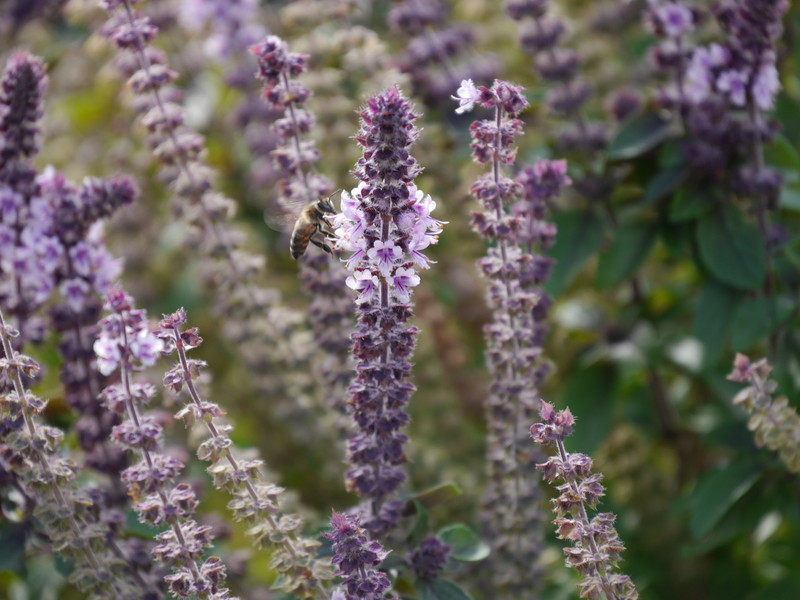Basil
Ocimum basilicum L.
Lamiaceae
Basil is a popular herb and is widely used in Mediterranean cuisine but it is also a valuable medicinal plant that we’d like to make you discover. Basil is named after the ancient Greek “Basilikion” which means “royal plant”. Why? Because it was used in Antique Times for ceremonies in Persia and Egypt. In India, from where it is native, basil is devoted to the god Vishnu, who received the aroma as an offering.
It was not until the 15th century that the plant was introduced to France. And it is now a must-have aroma, especially in the south of France, where we eat the famous “pistou des Provençaux”.
Like other plants of the same family, Lamiaceae, the composition of basil is variable, depending on its genetics and the place where it is grown. There are thus seven different chemical types, depending on the major molecule in the essential oil among which,
- Linalol, such as linalol thyme (the one found in the mountains of the Diois)
- Estragol, like tarragon. This is the case of basil grown in hot zones, also called tropical basil.
- Eugenol, like the clove.
- It may also contain eucalyptol, such as eucalyptus.
A real world tour of natural chemistry!
If we add hybrids with other basils and varietal selections, basil is undoubtedly the plant with the most taste and different aspects: a real source of inspiration for cooks and aromaticians!
Common basil, which is found in gardens, is a good antispasmodic, active especially on digestive or abdominal pain, indigestion, nausea or vomiting. This action on the muscles also helps to relieve coughs, and is especially useful for pertussis.
It is also a calming plant, which reduces disorders related to nervousness or stress and rebalances the nervous system. Its essential oil is antibacterial. It is also used in states of nervous fatigue and depression.
Infusions of basil leaves can be used as gargles to relieve sore throats or cancer sores, or compressed on the skin for dermatoses. Crumpled leaves on the skin keep mosquitoes away.
There is also another basil used in Ayurvedic medicine, Tulsi or Sacred Basilicus; Ocimum tenuifolium. This plant is a true panacea, a universal remedy used for fever, cough, osteoarthritis, respiratory disorders as well as for cardiac or nervous pathologies.
For the Indians, it is the “queen of herbs”. Pharmacological studies have confirmed its antibacterial, anti-inflammatory, calming and immune stimulating properties.
Basils are plants that are easy to grow in the garden, in a rich, fairly light soil. Watering should be regular but water should not stagnate around the roots.
You will find in the garden of the Herbier du Diois many species of basil like lemon basil, thaï basil, purple basil …
To discover their aromas, nothing more simple than a pesto !
Chop and crush the fresh leaves in a mortar with pine nuts (or walnuts), olive oil and a little salt.
Enjoy on a toast of bread, with cheese, pasta or salads.
